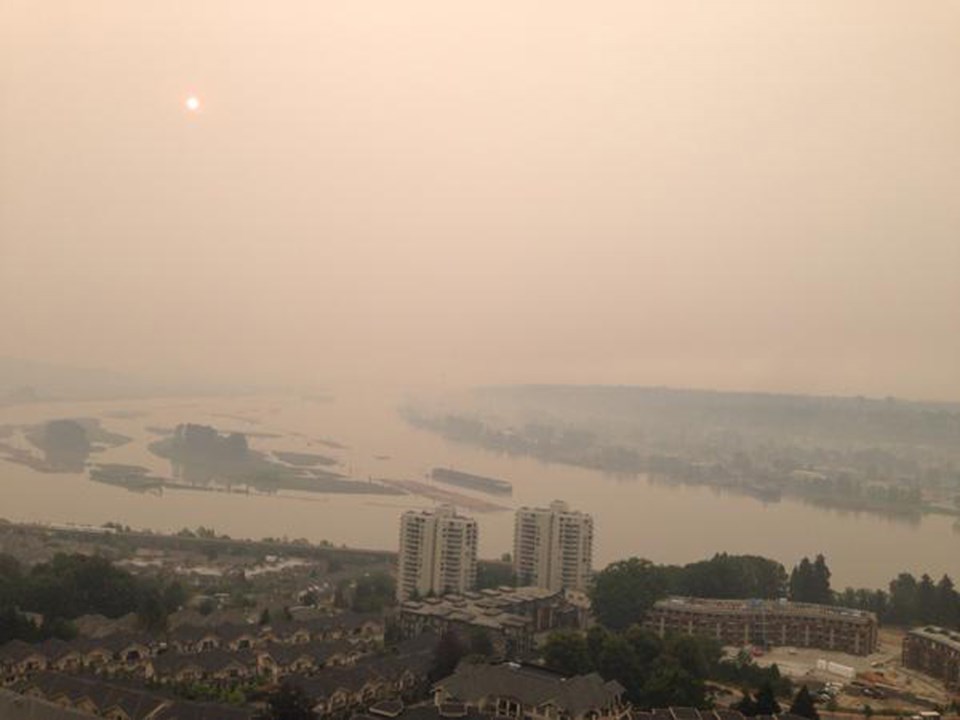Local air quality is improving, according to a new regional report, despite the heavy smoke from last year’s wildfires.
Average trends show improvements continue to be made against most smog-forming pollutants across the region, according to the latest Metro Vancouver report, Caring for the Air report for 2018.
The release of the seventh annual report, which coincides with national Clean Air Day, describes the progress made on air quality and climate change projects undertaken by Metro Vancouver and the Fraser Valley and other partners in 2017 and early 2018. For instance, while the unprecedented levels of wildfire smoke significantly affected air quality last year, several emission-reduction actions, such as more stringent objectives for sulphur dioxide (S02), helped to improve it.
“Average trends for the region show improvements have been made over the last decade for most air contaminants, even while the region’s population has continued to grow,” said Burnaby Mayor Derek Corrigan, chair of the regional government’s climate action committee. “Although our air quality is generally very good, we are committed to making improvements, however small, to tackle climate change and ensure our residents have clean air to breathe.”
Metro Vancouver compiles an inventory of air pollutant and greenhouse gas (GHG) emissions in the Lower Fraser Valley air shed every five years. In 2015, personal vehicles such as cars and trucks remained the largest source of smog-forming pollutants and greenhouse gases, due to the growth in the region’s population and the economy. However, overall GHG emissions declined by two percent, to about 15 million tons, since 2010, largely as a result of more efficient buildings and heating equipment.
Metro Vancouver’s Air Quality Monitoring Network includes 29 monitoring stations that collect data from Horseshoe Bay to Hope every hour of the day, seven days a week. Real-time data is available atwww.airmap.ca.
Metro Vancouver is also developing a Climate 2050 strategy, which will guide policy and actions across the region to reduce carbon emissions and prepare for the effects of global warming.



